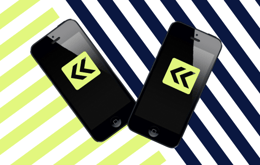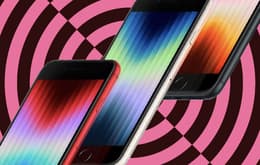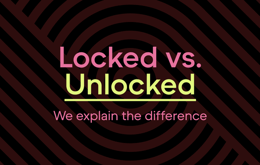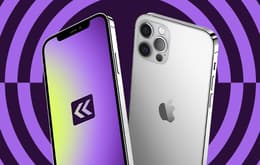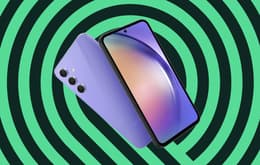
Understanding prepaid phones and how they work
Updated on March 28, 2025
March 28, 2025
9 mins read
Miguel G.
Sr. Tech Copywriter (US)
Are prepaid phones right for you? Learn when and why a prepaid phone makes for a good alternative to contract plans with a phone carrier.
What is a Prepaid phone?
A prepaid phone lets you pay for your service in advance with no contractual commitment. When we talk about prepaid phones, we’re actually referring to the plans for those phones. You can bring your own “unlocked” phone and insert your own SIM card to activate your prepaid plan, or buy a device sold by the prepaid phone plan provider.
While typical phone plans require a one-year or two-year commitment, prepaid phones require buying a set amount of minutes, texts, and data upfront. Once you run out, you buy more. If you only need a plan for a limited time — say, you’re traveling abroad — or you want more precise control over your phone expenses, prepaid plans may make sense for you.
How do Prepaid phones work?
1. Plan selection
Start by selecting a prepaid phone plan that fits your needs. Many prepaid plan providers offer tiers based on the amount of high-speed data you plan to use. For the most part, unlimited texting and calling in the U.S. is standard. Many plans also cover unlimited texting to other countries.
2. Service activation
Activating a prepaid phone depends on your carrier, but it’s typically straightforward. Once you purchase a prepaid phone or SIM card, you can activate it online or by calling the carrier’s customer service. Once activated, your phone is ready to use immediately. Try making a test call or text to make sure it works properly.
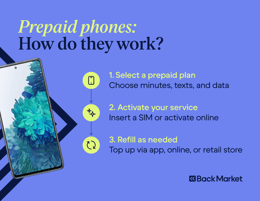
3. Refilling service
Prepaid plans often need to be monitored to ensure you don’t run out of service unexpectedly. You can check your usage by phone, online, or through your carrier's app, if they have one. Some carriers also send notifications when you reach certain milestones of your prepaid plan, so you know it’s time to refill.
To keep your prepaid service active, you’ll need to refill your account with additional minutes, texts, or data. This can be done online, on the phone, through the carrier’s app, or through retail partners. Some carriers also offer auto-refill options, so you never have to worry about running out of service. Make sure you’re aware of any possible expiration dates for the minutes, texts, or date purchases to ensure you aren’t left high and dry without service.

3 Types of Prepaid plans
1. Pay-as-you-go
With the pay-as-you-go model, you add credit as you run out of texts, minutes, or data. If you use more than expected, you can refill your account anytime. This model allows you to control your spending and avoid unexpected bills. Pay-as-you-go is great if you don’t use your phone that often and don’t need a large amount of service each month.
2. Monthly plans
Monthly prepaid plans offer a set amount of minutes, texts, and data for a flat monthly fee. Monthly plans typically include unlimited options for calls and texts and some amount of data, including unlimited data for some plans.
If you have consistent usage patterns and want to avoid the hassle of frequently refilling your account, a monthly plan is likely right for you. But be careful: if you go over your monthly usage and you don’t have an unlimited plan, you can risk restricting your data or additional fees.
3. Data-only plans
Data-only plans are designed for tablets, mobile hotspots, and other devices that don’t need traditional calling or texting capabilities. These plans provide a set amount of data or unlimited data each month, which can be used for browsing, streaming, and anything else you do online. Data-only plans are perfect for users who rely heavily on internet connectivity.
Be sure to read the fine print, though: some data plans offered by prepaid phone plan providers may cap speeds. This is true of all three prepaid phone plan types.
5 Benefits of prepaid phones: how they stack up against contract phones
Feature | Prepaid phones | Contract phones |
Contract | No | Yes |
Cost control | Yes | Limited |
Plan flexibility | Yes | Limited |
Credit check required | No | Yes |
1. Usage scenarios
Prepaid phones are ideal if you hardly use your phone, have a small budget, or want to avoid entering a long-term contract. They also can be used as a starter phone to see how much data you might use before considering a contract phone that you can’t get out of. But if you want the security of a plan you don’t have to think about every month, a contract phone might be the ideal option.
2. No contracts
Contract phones (sometimes called “postpaid plans”) require a long-term commitment that usually lasts 24 months. If you want to leave early, that’s going to cost you extra. Prepaid phones, on the other hand, offer the freedom to switch plans or providers at any time.
3. Cost control
Prepaid phones help you manage your expenses by allowing you to pay only for what you use. There are no surprise bills or hidden fees: you see your price upfront and know exactly what you’ll pay. Contract phones often cost more overall and don’t have all the fees built into the base price.
Prepaid phones don’t have early termination fees like contract phone plan providers do. They are also ideal for travelers who want to avoid international roaming charges by using prepaid SIM cards, whether you’re traveling for work, leisure, or a study abroad class as a student. If you don’t have these options with a contract provider or don’t remember to add them on, you may be in for a big bill next cycle.
4. Flexibility
With a prepaid plan, you can easily change your plan to suit your needs, whether you need more data one month or fewer minutes the next. This adaptability is just right if you want to customize your usage from month to month. Many contract phones don’t have that kind of flexibility, although many prepaid and contact plans offer add-ons that can be applied similarly.
5. Accessibility
Many prepaid phones do not require a credit check. If you don’t want your credit checked or have less-than-ideal credit, a prepaid plan still gets you the phone you need without that hassle. Contract phone carriers require a credit check.
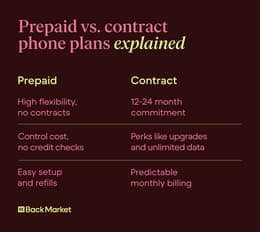
Who should consider a Prepaid phone plan?
Budget-conscious users
You can choose a plan that fits your budget and avoid unexpected costs by having an upfront flat rate. If it ever becomes too expensive, you can save money with prepaid because no contracts mean you can cancel at any time.
Students
Move over, instant ramen: there’s a new way for budget-savvy students to save. The flexibility of prepaid plans means that students can still get the service and data they need without overspending on a more expensive plan.
Temporary or infrequent users
If you only need a phone for a short period, or you really don’t plan to use it all that much, a prepaid phone is a practical choice. You can pay for the service you need without committing to a long-term plan.
Credit-constrained individuals
Prepaid phones are accessible to those who may not qualify for a contract phone due to credit issues. They provide a way to stay connected without the need for a credit check.
Frequent travelers
If work takes you to Brazil once a month or you really love to vacation in Italy (don’t we all?), a prepaid phone plan is an excellent choice. Many prepaid phone providers make it easy to activate foreign coverage plans. You might find yourself stuck with expensive roaming charges — or a phone that won’t work — if you use your contract phone abroad.
The most popular Prepaid phone providers in the US
Several carriers offer prepaid phone services, each with its own set of plans and features. Here are a few popular options:
Visible: Visible is powered by Verizon's award-winning 5G network and is known for its unlimited data plan, including unlimited hotspot data, that you can purchase on a monthly or annual basis.
Back Market x Visible

*and then $25/month after 24 months
Mint Mobile: Sign up for a monthly plan, or buy three months at once to save money over time. You receive unlimited talk and text and can bring your existing phone number over on this prepaid plan.
T-Mobile Prepaid: Choose from several unlimited phone and data plans. This provider also offers additional perks and discounts from select partners, great for savvy shoppers who love a deal.
AT&T Prepaid: AT&T offers unlimited and value plans, alongside multi-month discounts at three-month and 12-month intervals.
Cricket Wireless: Cricket Wireless offers several tiers of service at monthly, three-month, and annual rates.
What to consider when looking for the best Prepaid phone plan?
1. Coverage
Ensure the provider you choose has good network coverage in your area. Remember: all phone carriers in the U.S. run on either CDMA (Verizon, Sprint) or GSM (T-Mobile, AT&T) networks. Look up which network provider supports your prepaid phone plan, and use that information to confirm the coverage area where you plan to use your phone the most. In short: If Verizon or T-Mobile offer good coverage in your area, the prepaid phone plan will offer the same.

2. Data needs
Consider your data usage habits. If you’re consistent, whether it’s streaming videos or using your phone for work, you might need a plan with a higher data allowance. If you only use your phone a few times a day and you spend most of that time connected to Wi-Fi, a lower data allowance is suitable.
3. Budget
Select a plan that fits your budget. Prepaid plans offer a range of options, so you can find one that meets your financial needs without compromising on service. Many plans also offer additional ways to save, like discounts for auto-billing, multiple lines, or multi-month payments.
4. Additional features
Look for plans that offer extras tailor-made for changing situations. International calling or texting, mobile hotspots, smartwatch data coverage, and rollover data are just a few of the additional features to keep an eye out for. These all add value to your prepaid plan — but only when you need it.
The freedom and flexibility of Prepaid phones
Prepaid phones offer a flexible, cost-effective alternative to traditional contract phones. With no long-term commitments, greater control over your spending, and a range of plans, they may be the right alternative to a traditional, multi-year carrier.
Getting started with a prepaid phone has never been easier with Back Market. Hundreds of refurbished smartphones, all at up to 70% off retail price, are ready to use right out the box with your prepaid plan. Look for the “unlocked” designation, which means you can bring the phone to whichever prepaid carrier you’d like. Every device is backed by a one-year warranty, so you can shop with confidence. And with our device grading system, you’ll know the cosmetic condition of your chosen phone before it arrives.

Written by Miguel G., Sr. Tech Copywriter (US)
Miguel is always looking for new ways to provide unique perspective on popular tech and has taken his writing to the refurbished industry to promote sustainability. Outside of creating content, you might find him travelling the globe, coaching a fitness class, or cheering on his favorite sports teams (Go Dolphins!)


